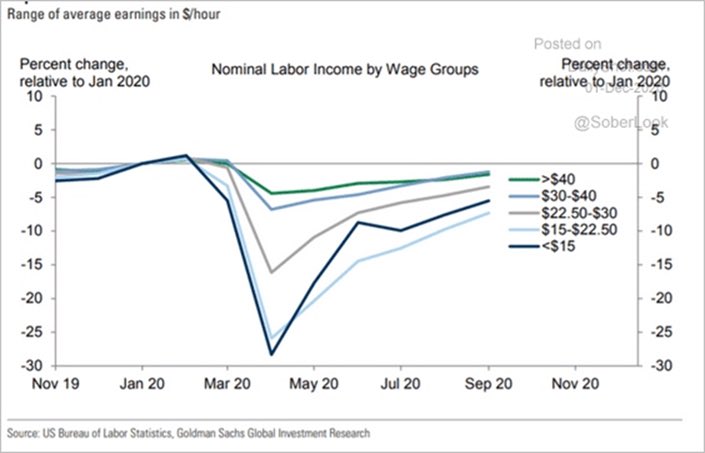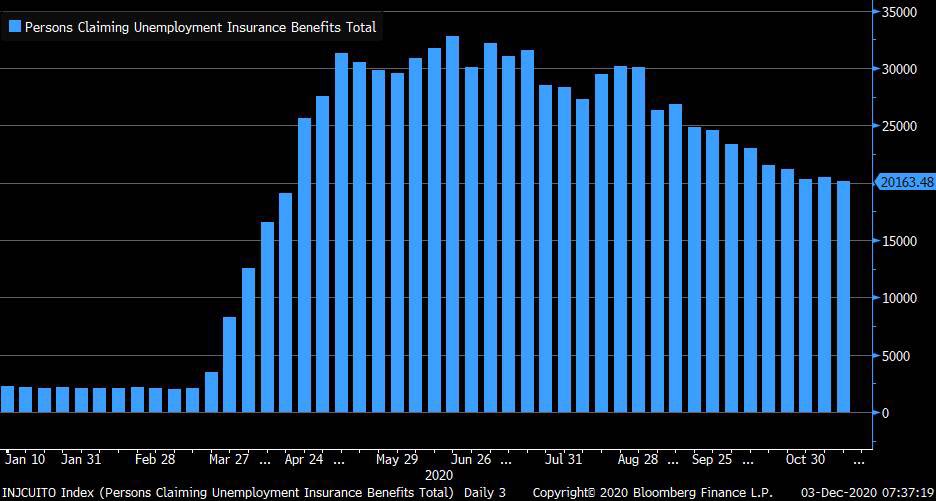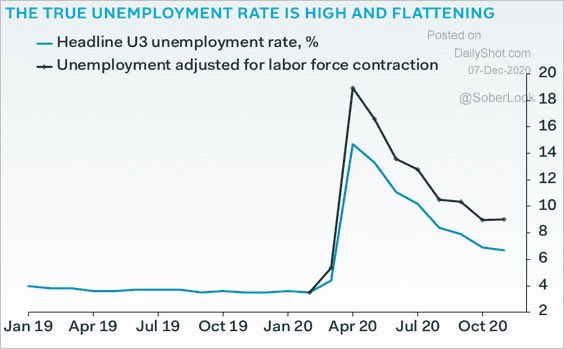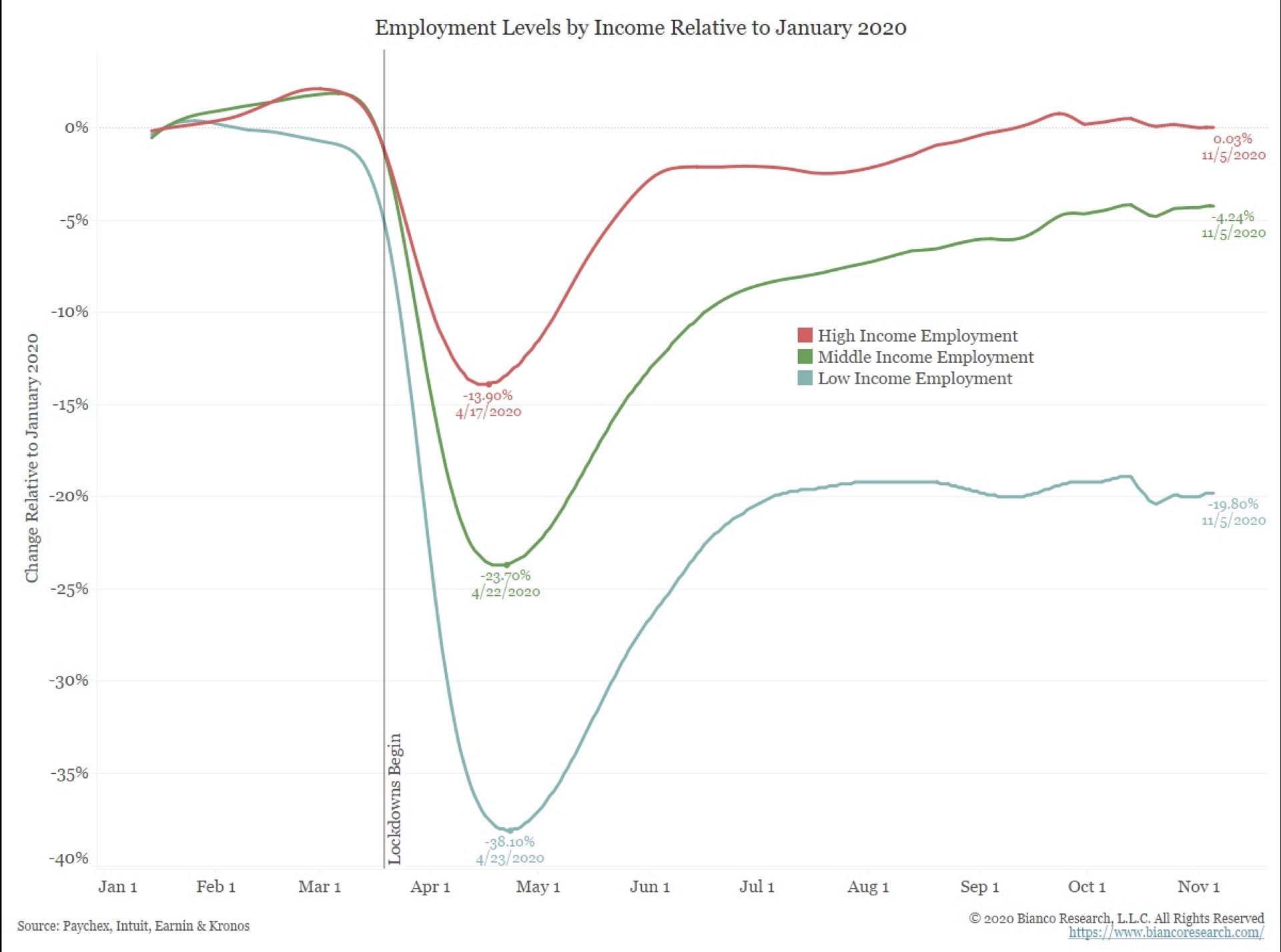Inflation (sometimes called an indirect tax) is another way.@1forum1 wrote:
There are basically only four ways to pay off government debt. 1) cut government spending 2) shift spending to areas that create jobs 3) drive economic growth at a faster rate 4) raise taxes. .
U.S. Treasury bond holders will get their money back in nominal terms, but it may be worth less from inflation in real terms.
Post-WW2, we had a slightly higher debt-to-GDP ratio than we do for what's projected out to 2021 by the CBO (119% vs. 115%, respectively). From 1945 to 1981, we shrunk the ratio down to about 25%. That was done by higher GDP growth, higher taxes, and higher inflation.
Higher growth may be a lot less likely nowadays, given aging demographics, record high levels of inequality, and less of a free market (since the late 1970's, post-campaign finance law reforms that legalized corporate bribery of our elected officials have led to what political scientists agree is an oligarchic state in the U.S.). That leaves:
cutting spending
higher taxes
inflation
Without getting into pure politics, I don't think we get higher taxes (yet) with gridlock. Broad inflation in the short-term may not be likely, as we're in a recession with demand destruction/deflation and no guarantees of big stimulus. Cutting government spending is also not likely, given that it is political suicide - not to mention ever increasing liabilities in Social Security and Medicare.
That leaves one thing: Fed control of interest rates - i.e., keeping them low. That's the only way we can temporarily "manage" the debt, until those other forces kick in at some later date (and even then, it will likely require low rates for a while). BUT, that robs savers of their risk-free rate at the bank (savings account, CDs, and money market funds) and in U.S. bonds. Only the 30-year Treasury is currently beating inflation (by the tiniest amount and is no guarantee to continue to do so). If you buy and hold any U.S. Treasuries right now below that level, you're losing money. Cash is losing money. This means people are forced to seek yield in either alternative asset classes (gold and bitcoin, for example) or stocks (further driving up the bubble).
From 1945 to 1980, as we shrunk the national debt, real interest rates averaged (negative) -.3% (see Harvard economist/IMF official, Carmen Reinhart's, work on this).
 The Fed had to suppress interest rates (below inflation levels) during that period, in order to be able to service payments. Bond holders lost their money in real terms. A repeat of this in the 2020's is why many people are getting out of U.S. Treasuries and cash (outside of an emergency fund and some extra sideline cash in case of a market crash to buy the dip). It's possible the Fed introduces nominal negative interest rates, which would lead to Treasury bond appreciation, like in Europe and Japan, but that is a low probability, given what they've said (not being a fan of them). So, be careful if you are a U.S. Treasury bond holder!
The Fed had to suppress interest rates (below inflation levels) during that period, in order to be able to service payments. Bond holders lost their money in real terms. A repeat of this in the 2020's is why many people are getting out of U.S. Treasuries and cash (outside of an emergency fund and some extra sideline cash in case of a market crash to buy the dip). It's possible the Fed introduces nominal negative interest rates, which would lead to Treasury bond appreciation, like in Europe and Japan, but that is a low probability, given what they've said (not being a fan of them). So, be careful if you are a U.S. Treasury bond holder!Edited 2 time(s). Last edit at 12/02/2020 06:55AM by shoptastic.







